METALS News

AI in the Classroom: A Learning Process — The Link – The Magazine of CMU’s School of Computer Science
The TEEL Lab is also interested in learning more about how effective automatic grading tools can be in providing feedback to students and alleviating stress on instructors.

Sail() Platform Revolutionizes Tech Education in Community Colleges and Beyond — The Link – The Magazine of CMU’s School of Computer Science
The TEEL Lab is also interested in learning more about how effective automatic grading tools can be in providing feedback to students and alleviating stress on instructors.

SCS Research Highlights Kids’ Role in AI — The Link – The Magazine of CMU’s School of Computer Science
The TEEL Lab is also interested in learning more about how effective automatic grading tools can be in providing feedback to students and alleviating stress on instructors.
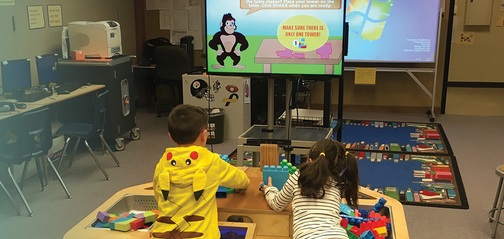
Promoting Critical Thinking in AI Education Models — The Link – The Magazine of CMU’s School of Computer Science
The TEEL Lab is also interested in learning more about how effective automatic grading tools can be in providing feedback to students and alleviating stress on instructors.
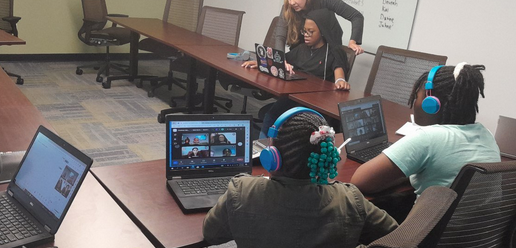
PLUS: Adding Up Math Learning Gains — The Link – The Magazine of CMU’s School of Computer Science
In the middle of the 2024-25 school year, PLUS tutors were working with more than 2,700 students at 13 schools in four states. When a tutor meets with students they might start with a short ice breaker, then divide the students into breakout rooms so they can work individually on assignments. An AI dashboard allows the tutor to prioritize which students to check on by showing whether everyone might need motivational or content help, might not need any help, or might have gone idle. Tutors build relationships with students over time.

From Code to Commands | Human-Computer Interaction Institute
Today’s generative artificial intelligence models can create everything from images to computer applications, but the quality of their output depends largely on the prompt a human user provides.

Three Seed Grants Awarded for Generative AI and Education Research | Human-Computer Interaction Institute
Carnegie Mellon University, as a leader in technology for education, provides tools and methods for CMU and the broader education community through rigorous research and learning science expertise. Last year, the university launched a new seed grant program to support faculty members in undertaking research and development of generative AI tools for education.

Practice Makes Perfect | Human-Computer Interaction Institute
While lectures are often considered a key element in teaching, research from Carnegie Mellon University’s School of Computer Science demonstrates that doing practice problems with feedback can help students learn better and faster — which could lead to more opportunities for students in the future.

Carnegie Mellon Names 2025 University Professors | Human-Computer Interaction Institute
Three Carnegie Mellon University faculty members have been chosen to receive the title of University Professor in 2025. University Professors are internationally recognized leaders in their fields, selected for the distinction based on their contributions to education, artistic creativity and/or research.
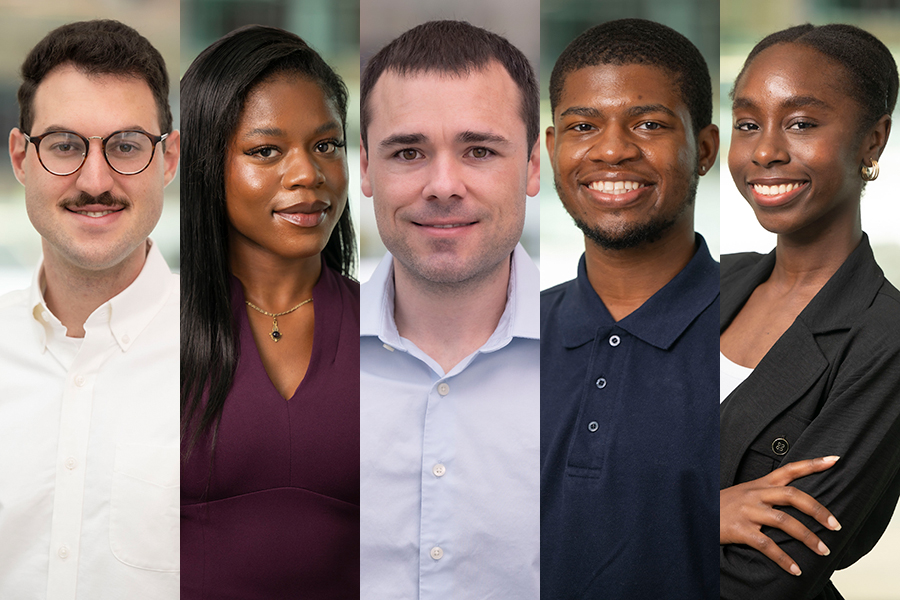
Social Good Inspires Rales Fellows Studying Computer Science
Rales fellows Isabel Agadagba, Wendy Bickersteth, Erick Cohen, Nicholas Dunn and Michael Sutton are hoping their computer science skills will one day impact others aiding in applications such as science research, educational tools, cybersecurity and privacy engineering.
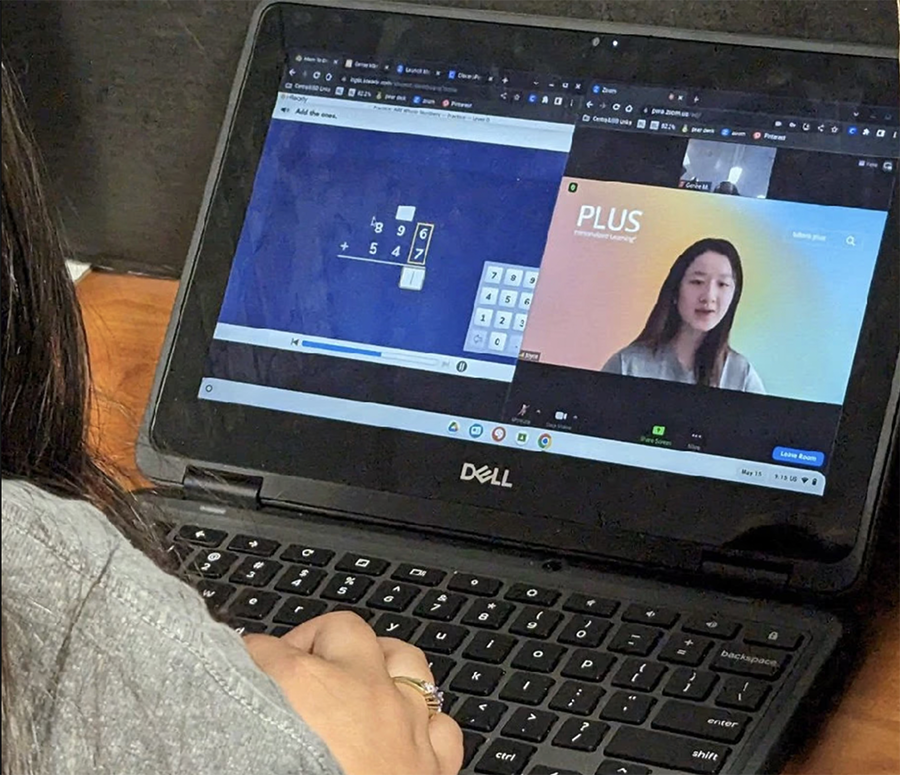
CMU Researchers Help Launch Project To Improve Education | Human-Computer Interaction Institute
Researchers at Carnegie Mellon University’s School of Computer Science (SCS) are part of a nationwide project harnessing data from virtual tutoring services to advance teaching and learning.

Research shows academic alerts impact grades, withdrawals
Most universities have systems to alert students to low grades or high absence rates, but there’s been little evidence showing they change student outcomes. New research from Oklahoma State shows the notifications are worthwhile investments.
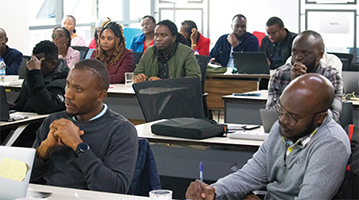
Empowering Futures: How Educational Technology is Revolutionizing Africa’s Learning Landscape
Learning science experts from Carnegie Mellon University’s Human Computer Interaction Institute (HCII) found that, in the right conditions, people learn at a remarkably similar rate.
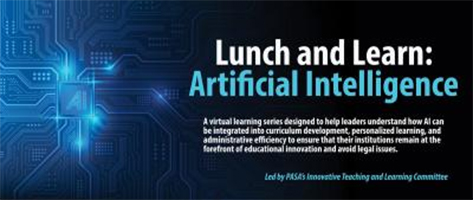
CMU Faculty and Staff Present at PASA Lunch and Learn | Human-Computer Interaction Institute
On Tuesday, March 5, Ken Koedinger, Erin Gatz, and Nesra Yannier shared the exciting work they’ve been doing in the field of Artificial Intelligence in education during the
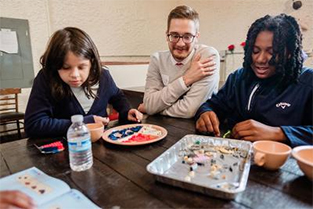
Carnegie Mellon University and Play Included® Bring LEGO® Brick Based Interventions to US | Human-Computer Interaction Institute
Brick by brick, Carnegie Mellon University is building a new way to transform children’s social and emotional learning in schools and community organizations throughout Pittsburgh and, eventually, across the country.
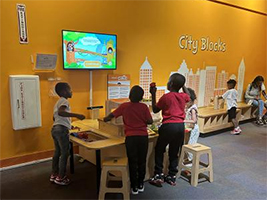
HCII Researchers Receive $3M NSF Grant to Expand AI-Powered Intelligent Science Stations in Schools | Human-Computer Interaction Institute
A team of researchers from the Human-Computer Interaction Institute (HCII) in Carnegie Mellon University’s School of Computer Science received a $3 million grant from the National Science Foundation to design interactive science experiences for students.
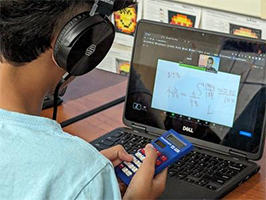
CMU’s PLUS Program Joins Learning Engineering Virtual Institute | Human-Computer Interaction Institute
National Program Will Expand Innovative Software for Teaching MathCarnegie Mellon University’s PLUS – Personalized Learning Squared has joined the Learning Engineering Virtual Institute (LEVI) in its aim to improve middle

Understanding Data Science Critical for Life, Education | Human-Computer Interaction Institute
CMU experts turn everyday educators into data scientists Teachers and administrators have access to more data on how their students are learning than ever before. Through learning management systems and educational technology, they can potentially see what teaching methods are resonating and which are falling short.
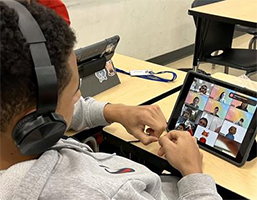
CMU’s PLUS Program Expands to Multiple Schools, Community Centers | Human-Computer Interaction Institute
Not all students will ask for help when they’re struggling, but more of them can get the support they need thanks to the expanded reach of education software designed by Carnegie Mellon University researchers.

CMU Team Wins $1M XPRIZE Digital Learning Challenge | Human-Computer Interaction Institute
Carnegie Mellon University learning science researchers John Stamper, Norman Bier and

The Myth of the Fast Learner
Learning science experts from Carnegie Mellon University’s Human Computer Interaction Institute (HCII) found that, in the right conditions, people learn at a remarkably similar rate.

CMU Professors Awarded NSF Future of Work Grant
SCS faculty members are part of a CMU team that received an NSF Future of Work grant to investigate how AI-augmented learning can help accelerate student progress in community college IT courses.

Video Game Focused on Community Health Receives Award at Meaningful Play Conference
Bloomwood Stories, an HCII-designed video game that helps members of underresourced or historically marginalized populations feel more confident handling health issues, won the Best Student Award at last month’s International Conference on Meaningful Play.
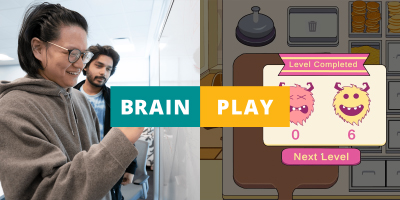
Neuroscientists and Game Designers Play Well Together | Human-Computer Interaction Institute
Jessica Hammer thinks the most important technology for making games is the brain.
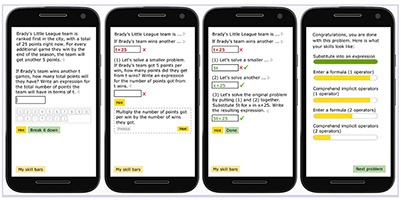
HCII Researchers Awarded $2M Grant To Test AI-Based Mobile Tutoring Software
A team of HCII researchers will use a grant from the U.S. Department of Education’s Institute of Education Sciences to develop and test a smartphone-based tutoring system for middle school mathematics that’s rooted in AI.
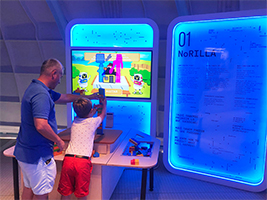
AI-Powered Museum Exhibit Shows Technology’s Potential in Education
NoRILLA, an HCII project that uses AI to assist children in hands-on educational experiments, was selected for an exhibit at CaixaForum Valencia, a new museum in Spain.

CMU Team Advances to Final Round of $1M XPRIZE Competition
Carnegie Mellon University learning science researchers are part of a multi-university team that has advanced to the final round of the XPRIZE Digital Learning Challenge.

The Future of Classroom Experimentation
John Stamper, an associate professor at the Carnegie Mellon’s Human-Computer Interaction Institute, discusses the future of classroom experimentation in a Q&A.

CMU Experts Help Reach Learners in Uganda
Carnegie Mellon University learning scientists are partnering with Yiya AirScience, a virtual classroom that can be accessed in communities across Africa.
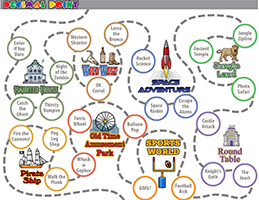
Discerning the Influence of Gender in the Effectiveness of Learning Games
The learning game Decimal Point aimed to help all students, but has helped middle school girls more than boys. CMU researchers are using an NSF grant to study gender-based differences more broadly in these types of games.
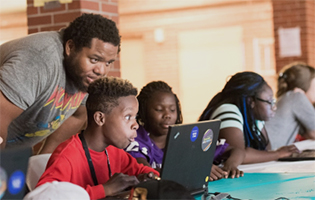
HCII Software Uses AI To Get Students To Do More Math | Human-Computer Interaction Institute
Software designed by members of the Human-Computer Interaction Institute’s (HCII) LearnLab to improve math learning outcomes for marginalized K-12 students received a top award from the International E-Learning Association (IELA).

Shonan Seminar & Carnegie Mellon University Partner to Improve Classroom Engagement and Learner Outcomes by Empowering Student Focus – METALS
Engaged students produce better learning outcomes. Through regular training to identify students’ key learning moments, times of peak student focus and motivation, teachers at Shonan Seminar aim to empower student achievement in every interaction.

Active learning: “Hands-on” meets “minds-on”
Nesra Yannier nyannier@andrew.cmu.edu, Scott E. Hudson, Kenneth R. Koedinger, Kathy Hirsh-Pasek kathryn.hirsh-pasek@temple.edu, Roberta Michnick Golinkoff, Yuko Munakata ymunakata@ucdavis.edu, Sabine Doebel, Daniel L. Schwartz daniel.schwartz@stanford.edu, Louis Deslauriers louis@physics.harvard.edu, Logan McCarty, Kristina Callaghan, Elli J. Theobald ellij@uw.edu, Scott Freeman, Katelyn M. Cooper katelyn.cooper@asu.edu, and Sara E. Brownell
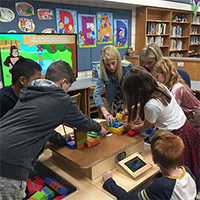
New research shows learning is more effective when active
Engaging students through interactive activities, discussions, feedback and AI-enhanced technologies resulted in improved academic performance compared to traditional lectures, lessons or readings, faculty from Carnegie Mellon University’s Human-Computer Interaction Institute concluded after collect…

Active learning best method for students, study says
Whether you’re a kid or a college student, you’ll learn more with interactive activities, discussions, movement and even AI-enhanced technologies than you will just sitting still and listening, a new study suggests.
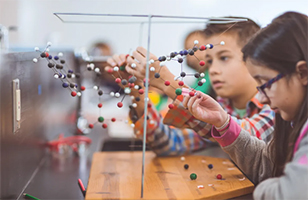
Put Children In The Driving Seat Of Their Own Learning For Better Results
Active learning – group work, discussions, hands-on learning – is more effective than traditional “teacher talk”, according to a new study.

METALS Students See Their Future in Alumni Mentors – News – Carnegie Mellon University
Using alumni mentors, CMU is making sure that high-quality, personalized feedback is possible in larger classes.

Survey reveals positive outlook on online instruction post-pandemic
The experience of learning remotely during the pandemic left students with a positive attitude toward online and hybrid courses, a new survey suggests.

A New Way to Learn Computer Science – News – Carnegie Mellon University
CMU team awarded Catalyst Prize from Schmidt Futures for work on learning tool.

Learning Engineering in Action – News – Carnegie Mellon University
Learning engineering, the way we design and build learning environments, has been a part of Carnegie Mellon University’s approach to education since Herb Simon coined the term more than fifty years ago. This year, as the COVID-19 pandemic affected the way all educators and students teach and learn, …

Signature Courses Lead the Way – News – Carnegie Mellon University
Preparations for fall are an investment in the future.
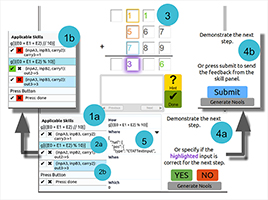
New AI Enables Teachers To Rapidly Develop Intelligent Tutoring Systems
Intelligent tutoring systems have been shown to be effective in helping to teach certain subjects, such as algebra or grammar, but creating these computerized systems is difficult and laborious. Now, researchers at Carnegie Mellon University have shown they can rapidly build them by, in effect, teac…

Hammer Earns NSF CAREER Award
Assistant Professor Jessica Hammer has received an NSF Faculty Early Career Award, the organization’s most prestigious award for young faculty members.
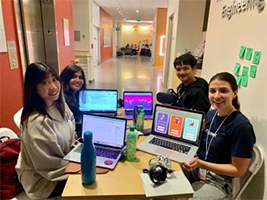
HCII Students’ Game Wins “Most Creative” at TreeHacks | Human-Computer Interaction Institute
Lucid Drums earned Most Creative Hack and finished in Top 8
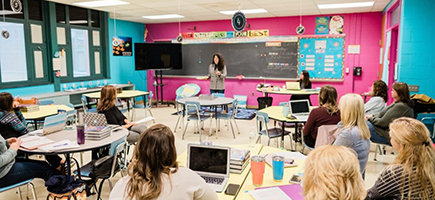
Innovation across the board – Remake Learning
How can educators spread what works in their classroom with their peers across the district? PL² supercharges the goal of school administrators everywhere.
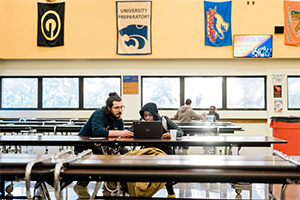
Personalized engagement powered by personalized learning – Remake Learning
How can artificial intelligence scale the power of personalized tutoring? PL² is looking for ways to amplify how Ready to Learn address the opportunity gap.
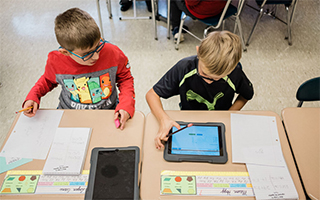
Building a bridge between home and school – Remake Learning
How can technology help parents and families support their children’s progress in school? Families at Shaler Reserve Primary School are piloting one approach using PL².
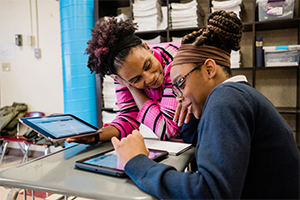
Noticing student progress, online and off – Remake Learning
How can educators use technology to keep track of those things they might otherwise miss? That’s the question PL² is exploring with Propel Schools.
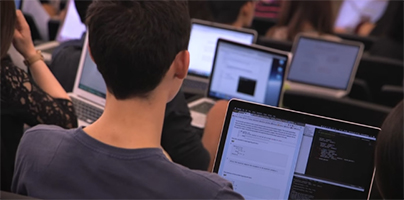
Revolutionizing Education – News – Carnegie Mellon University
Carnegie Mellon University is catalyzing a worldwide revolution in learning and teaching through its OpenSimon learning engineering community.

Simon Initiative Work in Rural Panama Begins – News – Carnegie Mellon University
Carnegie Mellon University learning engineers are heading to rural Panama to help teachers improve student outcomes in science, technology, engineering and math (STEM) courses.

HCII’s McLaren Will Promote Educational Technology in Chile
Bruce McLaren believes the moment is right to raise the status of educational technologies in Chile.
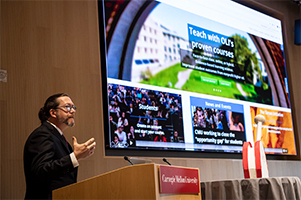
CMU, Lumen Learning Partner Delivery and Support of Evidence-Based Courseware – News – Carnegie Mellon University
Carnegie Mellon University’s Open Learning Initiative (OLI) and open education innovator Lumen Learning announced plans to provide coordinated delivery and support for OLI courseware.
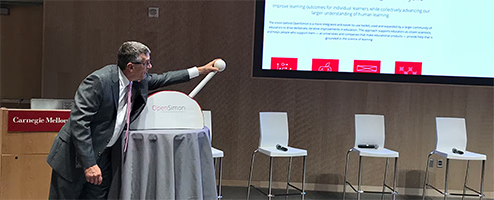
With Flip of a Giant Ceremonial Switch, CMU Starts Effort to Energize ‘Learning Engineering’ – EdSurge News
Pittsburgh, PA—For a moment this week, the provost of Carnegie Mellon University looked a bit like a game show host as he grabbed the lever of an …

How Carnegie Mellon’s $100 Million Software Donation Will Radically Change How Professors Teach
Carnegie Mellon University is betting $100 million that the best way to spark a revolution in education is not by building some product with artificial intelligence or some other whizzy new technology but by empowering educators to become applied learning scientists in their own classrooms.
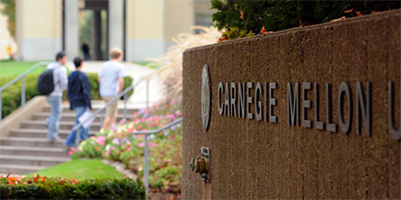
Carnegie Mellon Announces Release of Toolkit To Kickstart Global Revolution in Educational Effectiveness – News – Carnegie Mellon University
CMU will unveil tools, software and content to address the challenges of rapid change and growth related to 21st century educational needs.
Renaissance and Carnegie Mellon University Partner to Provide Educators with New Insights into Student Learning
The second collaboration between the global edtech leader and the acclaimed university will provide new data and analytics tools for school and district leaders WISCONSIN RAPIDS, Wis. (July 9, 2019) – Renaissance®, a global leader in pre-K–12 education technology, today […]
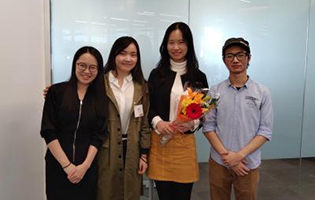
HCI Class Project Turned Entrepreneurship Lesson for Dedicated METALS Students | Human-Computer Interaction Institute
The work began as a group project for an elective HCI course.
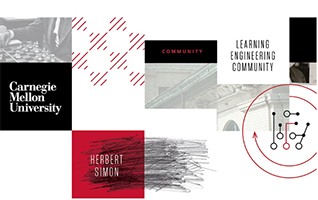
OpenSimon Toolkit To Make Every Classroom a Learning Laboratory – News – Carnegie Mellon University
Carnegie Mellon has launched OpenSimon — a learning engineering community that will catalyze a revolution in learning and teaching for the world’s educational institutions.
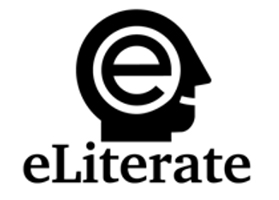
Carnegie Mellon and Lumen Learning Announce EEP-Relevant Collaboration
Late last week, Carnegie Mellon University (CMU) and Lumen Learning jointly issued a press release announcing their collaboration on an effort to integrate the Lumen-developed RISE analytical framewo
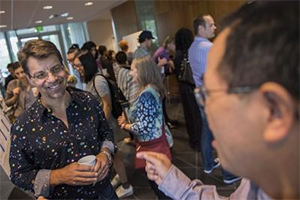
Two Research Projects To Close ‘Opportunity Gap’ for Students | Human-Computer Interaction Institute
A pair of separate, but complementary, research projects led by Carnegie Mellon University will use cutting-edge research in motivation, thinking, culturally affirming teaching and human-computer interaction to galvanize a community of teachers, mentors and parents around improving math achievement.
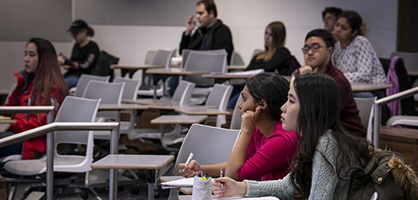
Carnegie Mellon, Lumen Learning Partner To Expand Support for Evidence-based Learning Materials – News – Carnegie Mellon University
Carnegie Mellon’s Simon Initiative and open courseware provider Lumen Learning today announced a partnership to share tools for developing, evaluating and continuously improving evidence-based learning materials.

CMU: Pittsburgh’s Learning Engine (Opinion)
The third post in our 6-part #RemakeLearning series looks at CMU’s partnerships with Pittsburgh Districts to advance education innovation and shape a new K-12 approach to computer science.
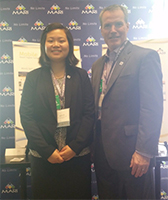
METALS Capstone Sponsor, MARi, finalist in Reach Higher Learning Career App Challenge | Human-Computer Interaction Institute
It’s not everyday that a Human-Computer Interaction Institute (HCII) capstone project brings you to the White House to present your work, but that’s what happened for Masters of Educational Technology and Applied Learning Science (METALS) student Kathy Yu.
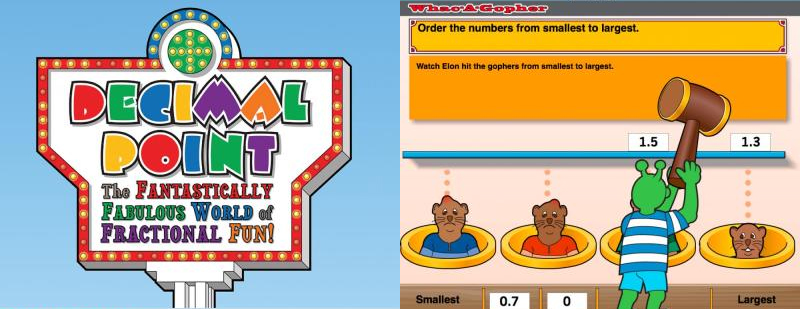
Decimal Game Helps Kids Get the Point | Human-Computer Interaction Institute
Kids may not always want to do their math homework, but they can’t seem to put down video games like Minecraft or Angry Birds.

Alumni Spotlight: Mark Potter, METALS ’14 | Human-Computer Interaction Institute
Mark Potter is a 2014 graduate from the Masters of Educational Technologies and Applied Learning Science (METALS) at Carnegie Mellon University.

CMU Researchers Advance Ed-Tech Pilots in Pittsburgh Schools | Human-Computer Interaction Institute
Technology use continues to rise in schools as an important means for teachers to create a more personalized learning experience for students. Schools are increasingly dedicating significant budgets to apply educational technology to classrooms, as much as 6.6 billion in the U.S. alone.
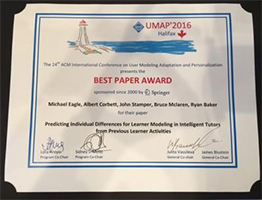
HCII Takes Home Best Paper Award at UMAP 2016 | Human-Computer Interaction Institute
Can past learning activities predict differences in individual student success? A recent project with researchers from the Human-Computer Interaction Institute (HCII) set out to answer just that, and picked up a Best Paper award along the way.
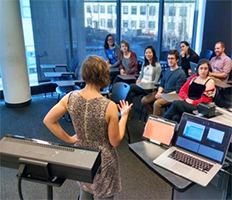
Ogan on Sensors in the Classroom | Human-Computer Interaction Institute
Carnegie Mellon University, like other colleges and universities, is able to create smaller learning cohorts from large lectures by using teaching assistants. These TAs often have varied backgrounds and levels of familiarity with the U.S. educational system, which can make learning experience and outcomes differ from section to section.

Ogan Awarded Jacobs Early Career Research Fellowship | Human-Computer Interaction Institute
Human-Computer Interaction Institute (HCII) Assistant Professor Amy Ogan firmly believes that the best way to improve educational technologies in international classrooms is to visit those classrooms personally, observing students and learning about how they learn.
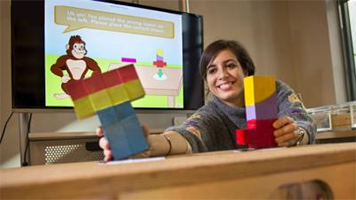
Student Spotlight: Ph.D. Candidate Nesra Yannier | Human-Computer Interaction Institute
Nesra Yannier, a current Ph.D. candidate in the HCII, recently presented her thesis project to an auditorium full of entrepreneurs, faculty, students, alumni and industry professionals at the 20th Show and Tell event for Project Olympus on Thursday, April 14, 2016.
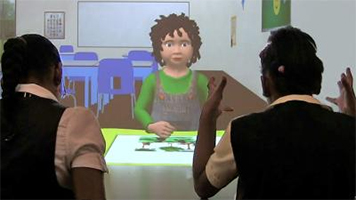
The Future of Education: Virtual Peers | Human-Computer Interaction Institute
Carnegie Mellon University researchers have found a way to improve education for elementary and middle school students.
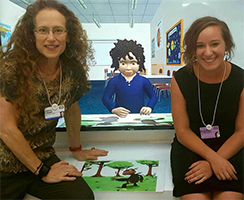
Want To Teach Kids “Proper” English? Speak Their Language.
Want To Teach Kids “Proper” English? Speak Their Language.
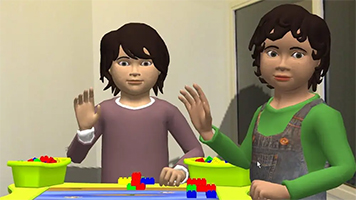
Virtual cartoon children look like a great way to teach kids
Can robots teach kids more effectively than humans?

Koedinger Will Deliver Keynote at Learning@Scale | Human-Computer Interaction Institute
HCII Faculty, Students to Present Papers and Works in Progress HCII faculty and students will travel to the University of Edinburgh next week for L@S: The Third Annual ACM Conference on Learning at Scale, April 25–26.

Faculty Spotlight: Assistant Professor Amy Ogan | Human-Computer Interaction Institute
Amy Ogan, an assistant professor in the HCII and an educational technologist, is fascinated by researching ways to make learning more engaging, effective and enjoyable. Ogan is also a recent recipient of the Jacobs Foundation Research Fellowship, a global fellowship program for the research on child and youth development.

HCII Faculty Among LearnLab Experts Who Participate in NSF Meeting | Human-Computer Interaction Institute
The National Science Foundation recently hosted a three-day conference to celebrate the success of its six Science of Learning Centers, and three HCII faculty members were among the representatives from Carnegie Mellon and the University of Pittsburgh’s LearnLab.

Lectures Best for Learning? Koedinger Says No | Human-Computer Interaction Institute
Traditional education models generally revolve around lectures, but new findings from HCII Professor Ken Koedinger and a team of Carnegie Mellon researchers shows that lectures aren’t nearly as effective as people think they are — at least those of the video variety.

Slate Calls Out Koedinger’s Contributions to Learning Technologies | Human-Computer Interaction Institute
Artificially intelligent software is changing the face of the American classroom, and Slate’s recent article “No More Pencils, No More Books” looks to experts like HCII Professor
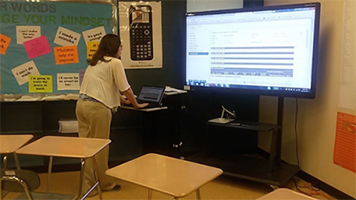
Learning Science Grants to Advance Educational Technology Research | Human-Computer Interaction Institute
The Human-Computer Interaction Institute (HCII) at Carnegie Mellon University received two new grants to advance research in the area of intelligent tutoring. The use of intelligent tutoring systems (ITS) has been shown to bridge the gap between lower and higher performing students. ITS will continue to play a critical role in improving the performance of U.S.

Louw Receives NSF Grant for Citizen Science | Human-Computer Interaction Institute
Learning Media Design Center Director and HCII faculty member Marti Louw will receive a three-year, $1.7 million National Science Foundation award to develop and study a cyberlearning tool that supports deep looking and learning in citizen science.

Koedinger Talks LearnSphere in Hechinger Report, U.S. News & World Report | Human-Computer Interaction Institute
“LearnSphere, a new $5 million federally funded project at Carnegie Mellon University, aims to become ‘the biggest open repository of education data’ in the world,” begins the Hechinger Report article “Carnegie Mellon Project Revives Failed inBloom Dream T
